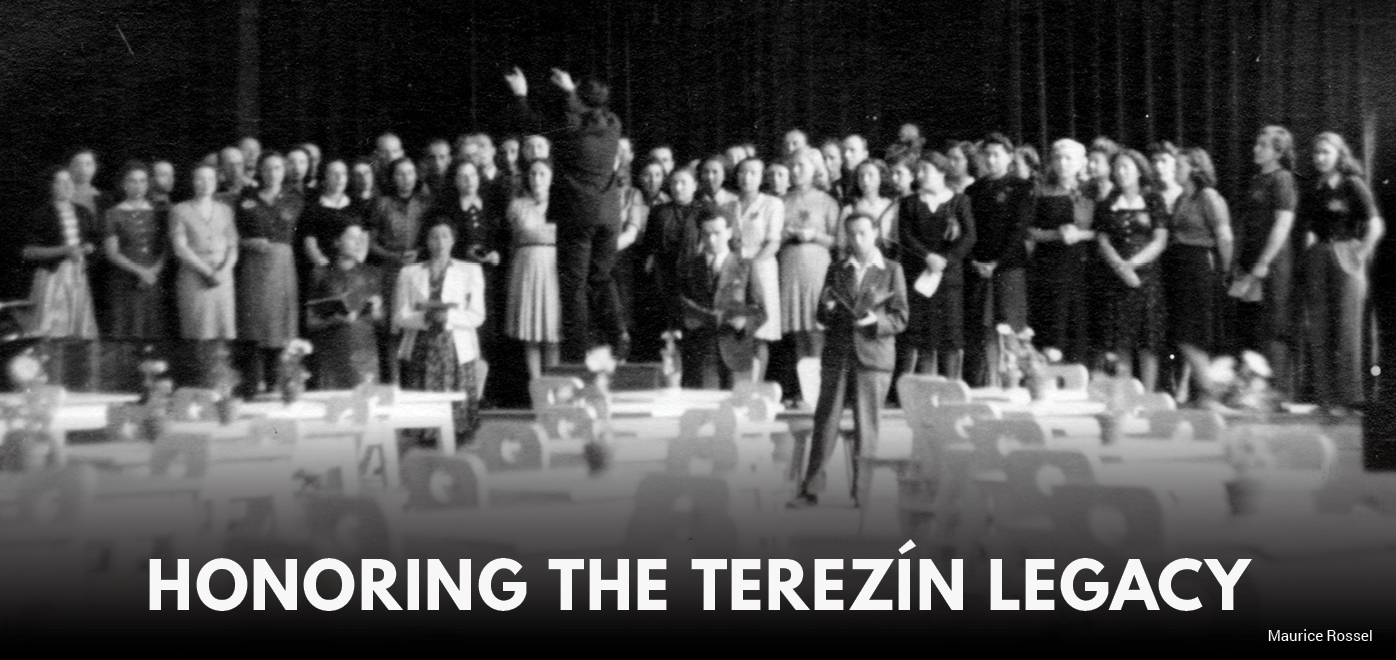Origins & Mission

Terezín, or as the Germans named it, Theresienstadt, is located about 40 miles northwest of Prague and was built as a garrison city in the 1780s. From 1941 to 1945, the Nazis used Terezín as a transit camp, ghetto, and concentration camp for Jewish prisoners. In spite of horrific living conditions, and the constant specters of starvation, death, and deportation, Jewish prisoners gave more than 2,400 lectures and presented more than 1,000 concerts — including 16 performances of Verdi’s Requiem Mass — for their fellow inmates. Despite the German propaganda image of Terezín as a “resort” for Jews, the statistics tell the real story: more than 140,000 people were imprisoned in Terezín and 33,430 were murdered within the ghetto walls. Another 88,000 were sent to the death camps, including 15,000 children, of whom fewer than 150 are believed to have survived. Terezín was liberated on May 8, 1945.
The Verdi performances, led by prisoner Rafael Schächter in 1943 and 1944, inspired conductor Murry Sidlin to create the concert-drama Defiant Requiem: Verdi at Terezín. The success of that concert led to the creation of The Defiant Requiem Foundation in 2008, an award-wining documentary film, a second concert-drama Hours of Freedom: The Story of the Terezín Composer, and robust educational materials.
Mission Statement
By honoring the defiance and bravery of the prisoners in the Theresienstadt Concentration Camp (Terezín) during World War II, performances by The Defiant Requiem Foundation show the role that music and art play in confronting contemporary challenges, including increased Holocaust ignorance, Holocaust denial, and antisemitism.
In refusing to forfeit their humanity, the Terezín prisoners taught a universal lesson about the power of music and art to foster hope and inspiration even in the face of monumental suffering, disease, and the constant presence of death. The Foundation’s hallmark concert performance, Defiant Requiem: Verdi at Terezín; its sister concert, Hours of Freedom: The Story of the Terezín Composer; its Emmy-nominated documentary film, Defiant Requiem; along with comprehensive curriculum modules that are designed to frame and enhance Holocaust education, all of which use the courage and cultural resistance of Rafael Schächter and his fellow prisoners to show why the Holocaust must never be forgotten.
Vision Statement
The Defiant Requiem Foundation strives to promote awareness and understanding of the dangers of antisemitism, Holocaust ignorance and denial, by presenting the singular story, and one with universal application, of Rafael Schächter and prisoners in the Terezín Concentration Camp during the Holocaust who used music and art as an act of defiance to maintain their humanity, dignity, hope, and inspiration. Using original performance art — increasingly on college campuses with student musicians and singers — documentary film, and educational materials geared for middle and high school students, the Foundation offers a unique approach to addressing contemporary issues of bigotry, human rights violations, mass atrocity and genocide crimes.

